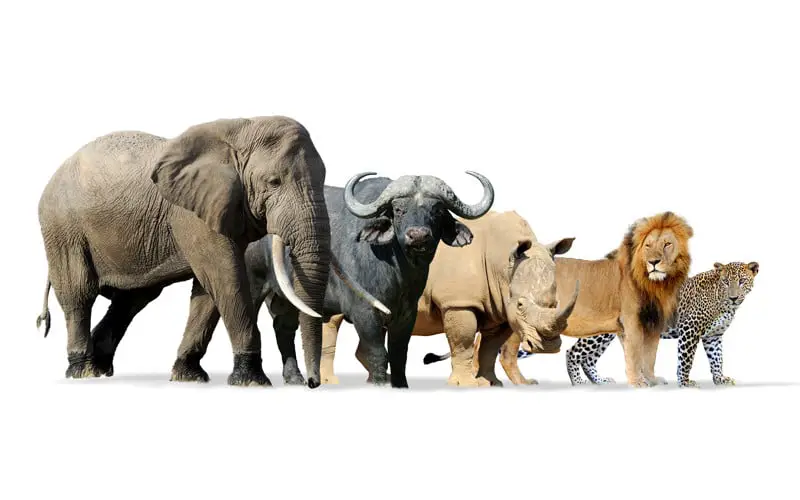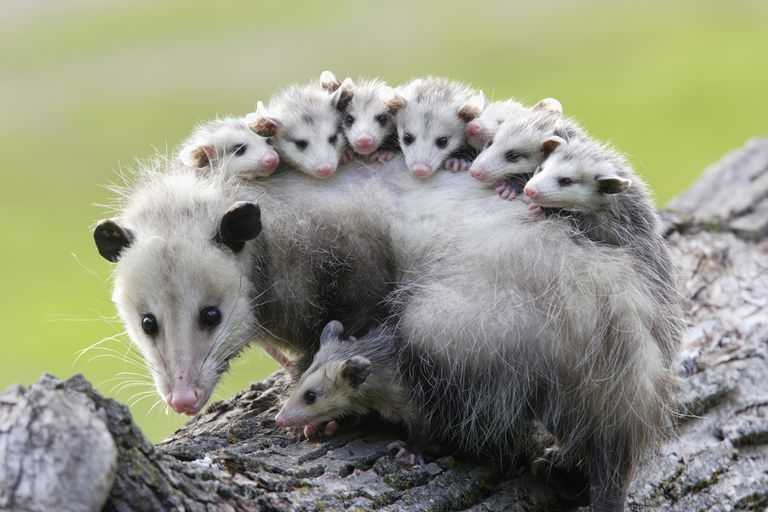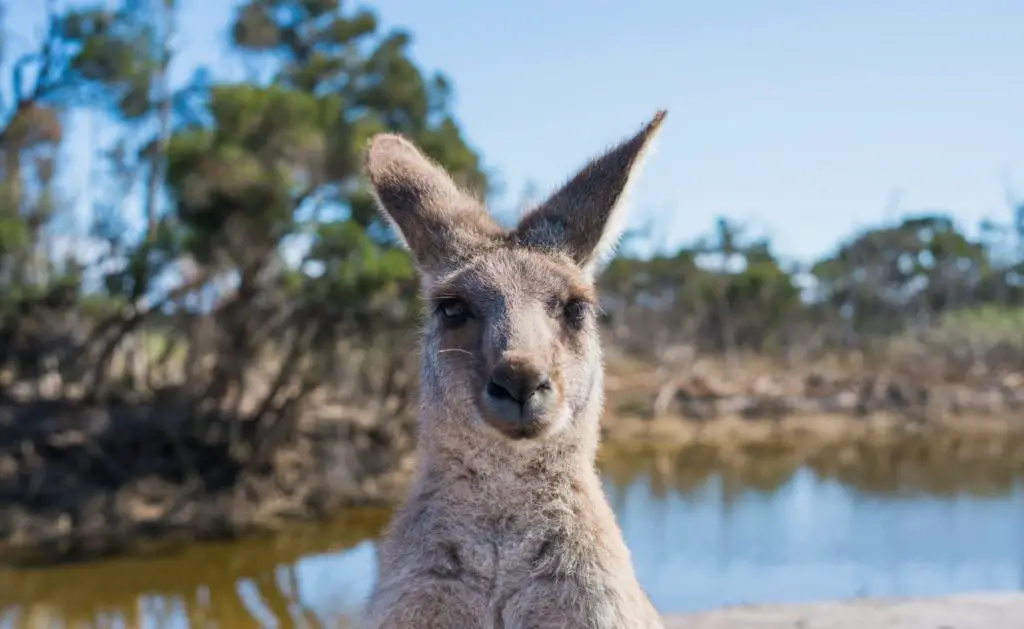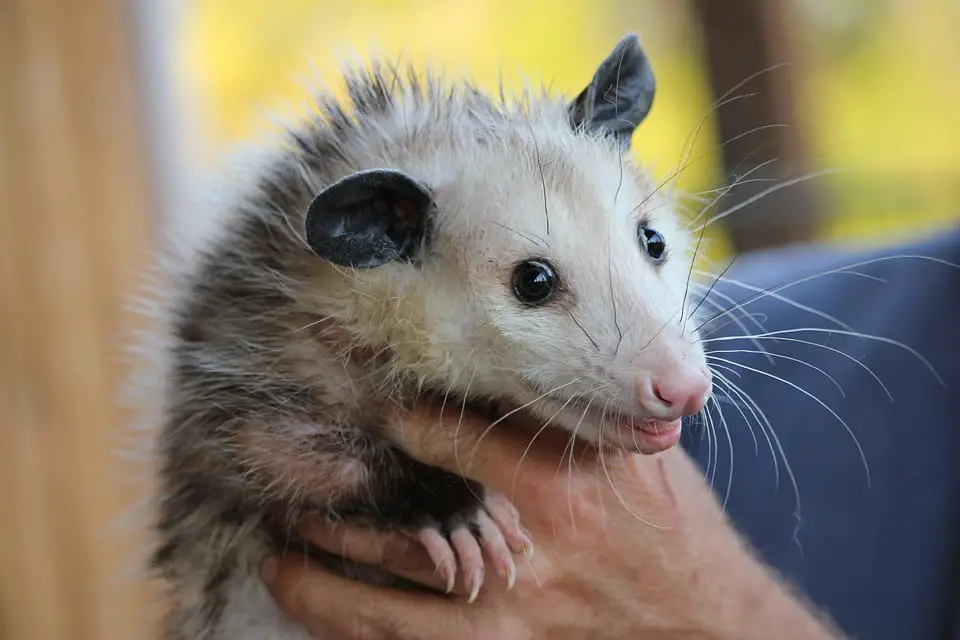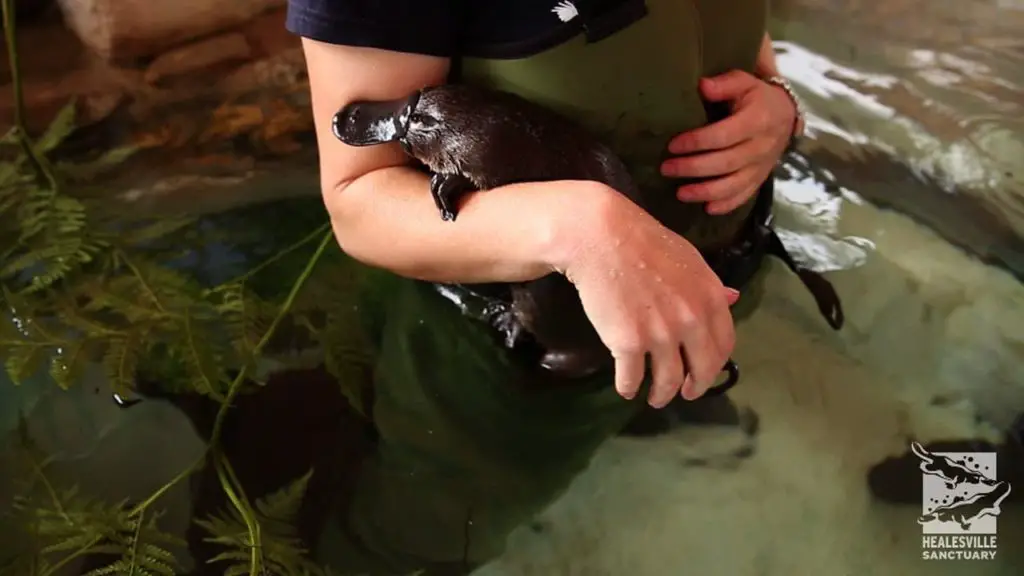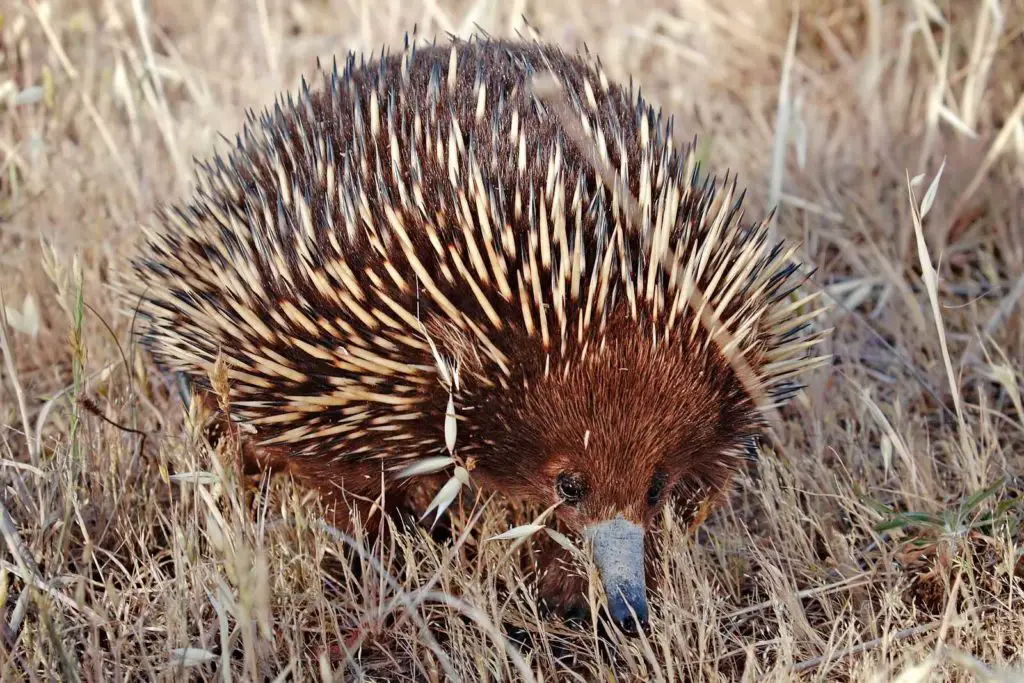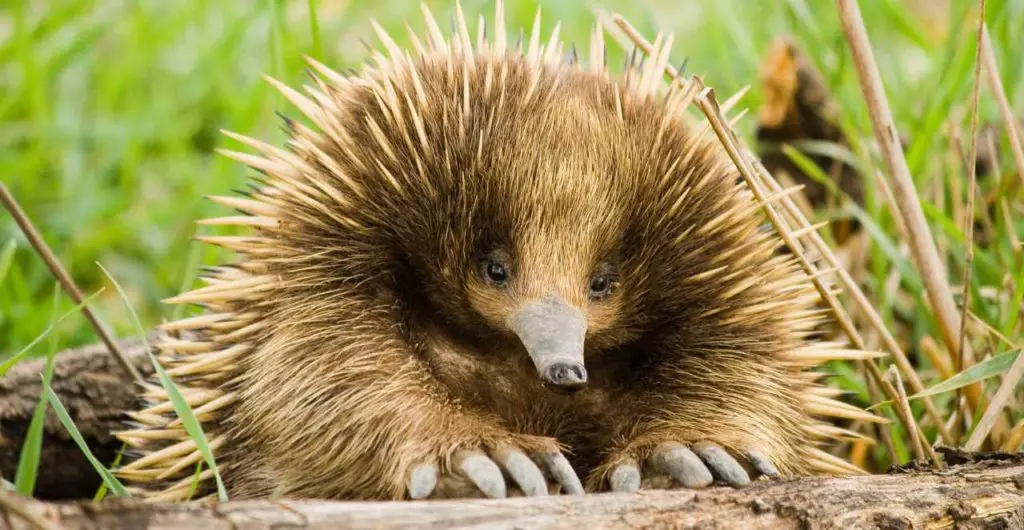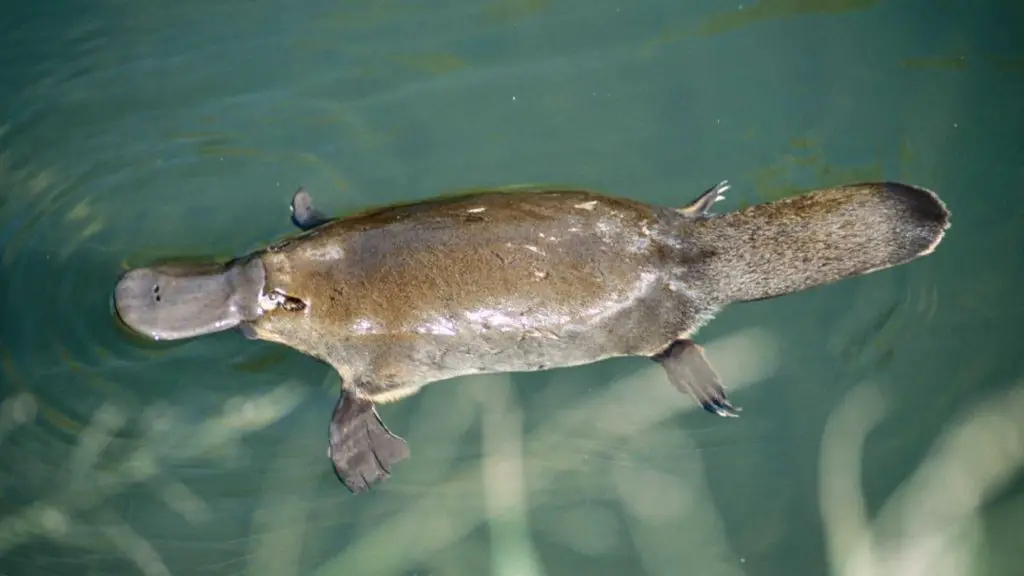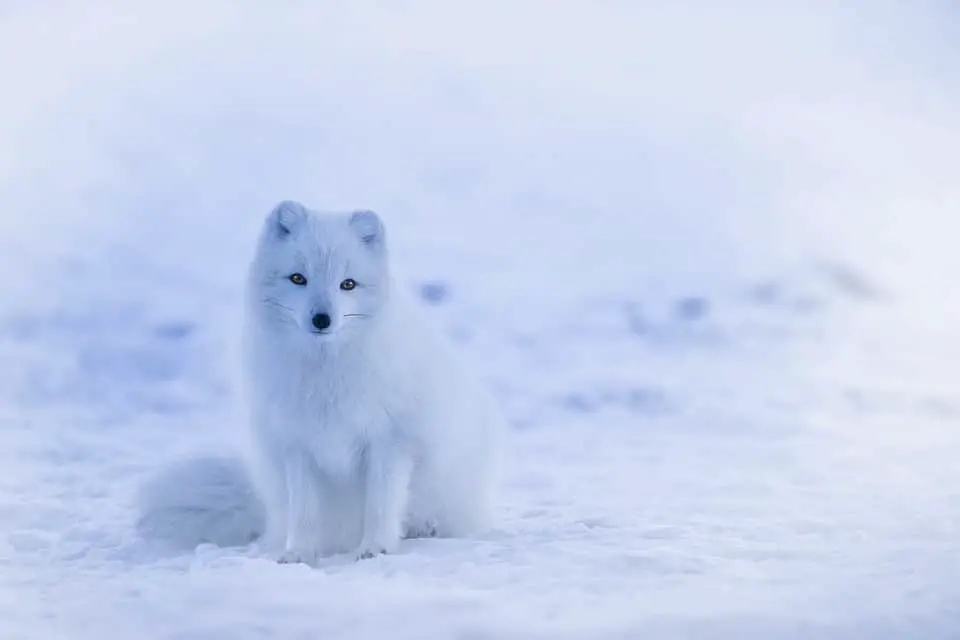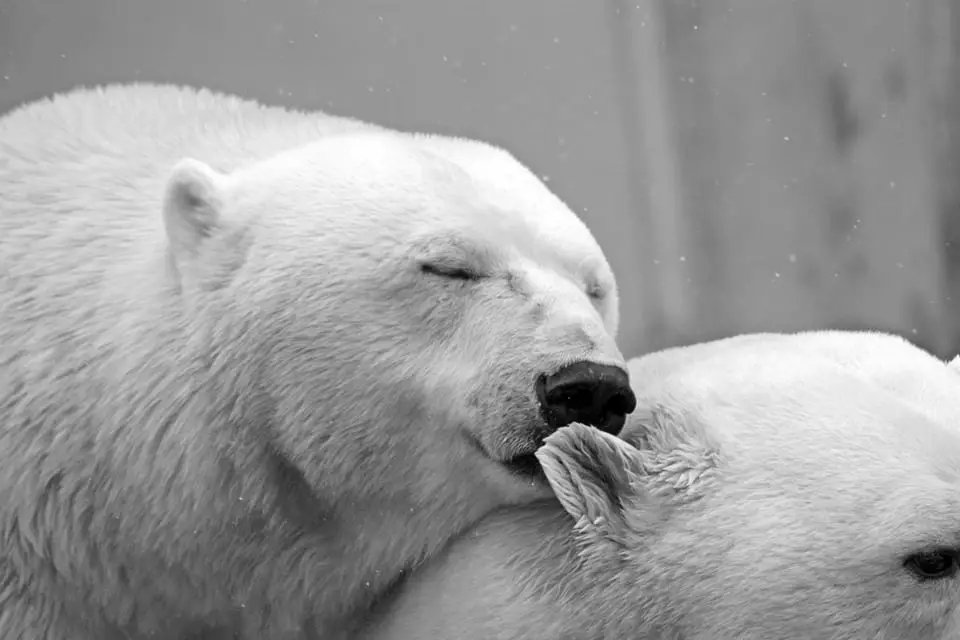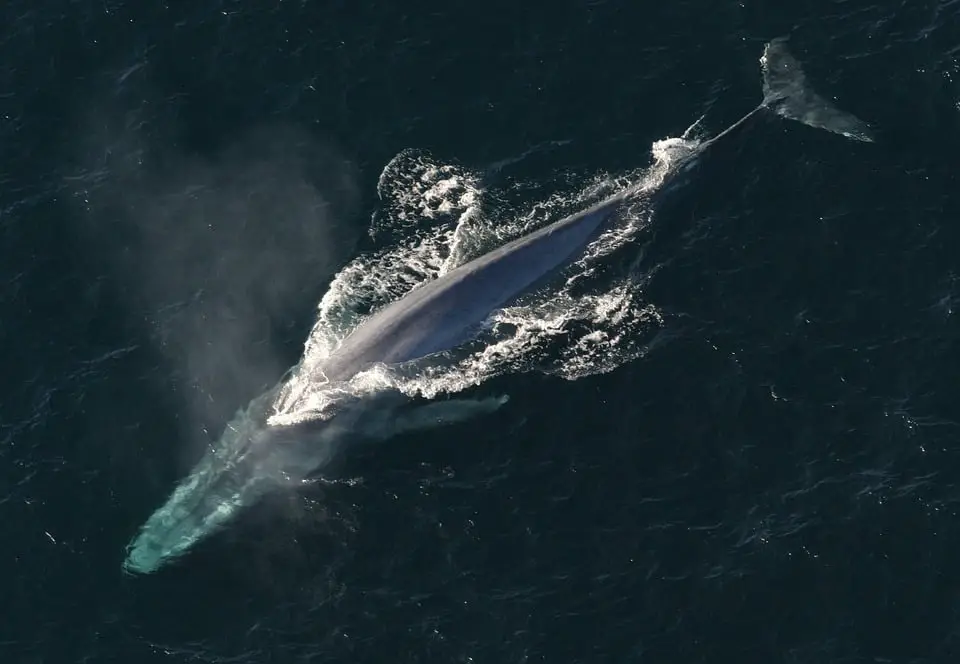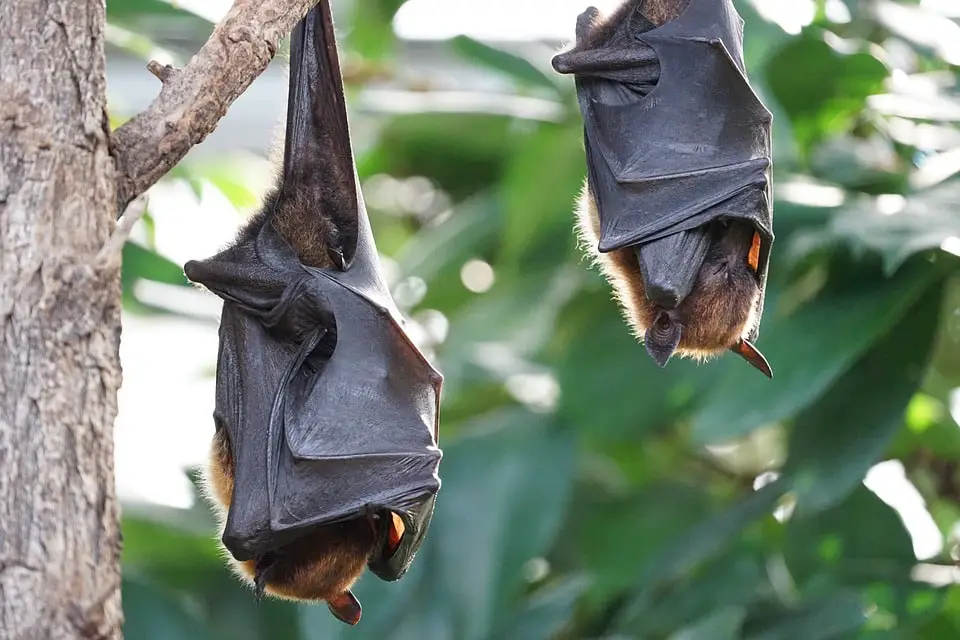The main three types of mammals are the marsupials (pouched mammals), monotremes (egg-laying mammals) and placental mammals. In general, you can define a mammal as a vertebrate animal (animals with a backbone) that has mammary glands.
These mammary glands allow the female to produce milk which uses to feed her young at birth. Other characteristics of mammals include a neocortex, fur or hair, and three middle ear bones.
Contents
Marsupials
Marsupials or pouched mammals are mammals of an order whose members are born incompletely developed and are typically carried and suckled in a pouch on the mother’s belly.
Marsupials are found mainly in Australia and New Guinea, although three families, including the opossums, live in America (North and South).
An interesting fact about opossums is that females can birth up to 21 babies. But, female opossums only have 13 nipples. Thus, the first 13 babies to climb into the pouch and attach to a nipple are the ones that survive.
Well-known marsupials include kangaroos, wallabies, koalas, possums, opossums, wombats, and Tasmanian devils.
Examples of Marsupials
The following are some photo examples of placental mammals/marsupials:
Monotremes
Monotremes or egg-laying mammals are a group of mammals that form the order Monotremata.
Monotremes are the only mammals that lay eggs and they also feed their babies with milk. The word ‘monotreme‘ refers to their common rear opening, the cloaca.
The platypus, the short-beaked echidna, and the three species of long-beaked echidna (Western, Eastern and Sir David Attenborough’s) are the only monotremes that still exist.
Fun fact: The platypus has the bill of a duck, the tail of a beaver, feet of an otter, and they lay eggs. On top of that, male platypuses are one of the few venomous kinds of mammals.
Monotreme Mammal Examples
Here are egg-laying mammals examples:
Placentals

Placental mammals develop within the body of the mother. Once the baby is able to function on its own, the mother gives birth. This group of mammals is named after the placenta, an organ in pregnant female mammals that delivers food and oxygen to the young within the womb.
Examples Of Placental Mammals
Bears, skunks, hedgehogs, dogs, cats, humans, are all examples of placental animals. Even whales, dolphins, in the ocean, and bats hiding out in caves, are placental mammals examples.
Mammals Characteristics
- Warm-blooded
All mammals are warm-blooded. This means that their body temperature is kept slightly higher than the temperature of their surroundings.
- Vertebrates
All mammals have a backbone/spinal cord. This backbone is connected by vertebra. Another unique feature of mammals is that they have 3 three middle ear bones.
- Mammary Glands
Female mammals produce milk through their mammary glands. The milk is used to nourish their young until the baby’s digestive system can break down solid food.
- Fur/Hair Covered Body
Mammals produce body heat through the food they eat. Thus, mammals can live in any climate. A mammal’s hair or fur provides insulation which traps heat inside the body and helps save energy.
Insulation is different for different kinds of mammals. For example, marine mammals like whales have blubber.
Other mammals like tigers have fur. Two coats, an outer coat, and an inner coat. The outer fur keeps the underfur dry by shedding water.
Mammals like the porcupine have thick spines that also help protect against predators. And, some mammals like the pangolin have scales.
References
- Types of Mammals (Video) – YouTube
- Mammal – Wikipedia
- Three Types of Mammals (PDF) – By Cindy Grigg
- The three different ways mammals give birth (Video) – YouTube
- Mammals for Kids: Learn about animals and what is a mammal. – Ducksters
- True facts about marsupials (Video) – YouTube
- Fun facts about the echidna (Video) – YouTube
- Monotreme – Video Learning – YouTube
- Placental mammal – Britannica
- Placentals (Video) – YouTube
- Neocortex (brain) – ScienceDaily
- What is a platypus? – NOAA’s National Ocean Service
The next time someone asks, what are the three types of mammals and to give an example of each, you can easily list out 5 examples of mammals for the 3 major groups.
